Home - Laboratory - Chantal Autexier
Chantal Autexier launched her independent research career at the LDI/McGill University in 1997 with the purpose of understanding the mechanisms regulating telomerase and telomere function in health and disease. Objectives of the laboratory are to identify and characterize the molecular mechanisms controlling telomerase RNA processing, telomerase ribonucleoprotein biogenesis and function at telomeres and in cellular survival and immortalization and to identify mechanisms controlling the homologous recombination-based alternative telomere lengthening pathway. Studies in the laboratory are currently funded by CIHR and NSERC.
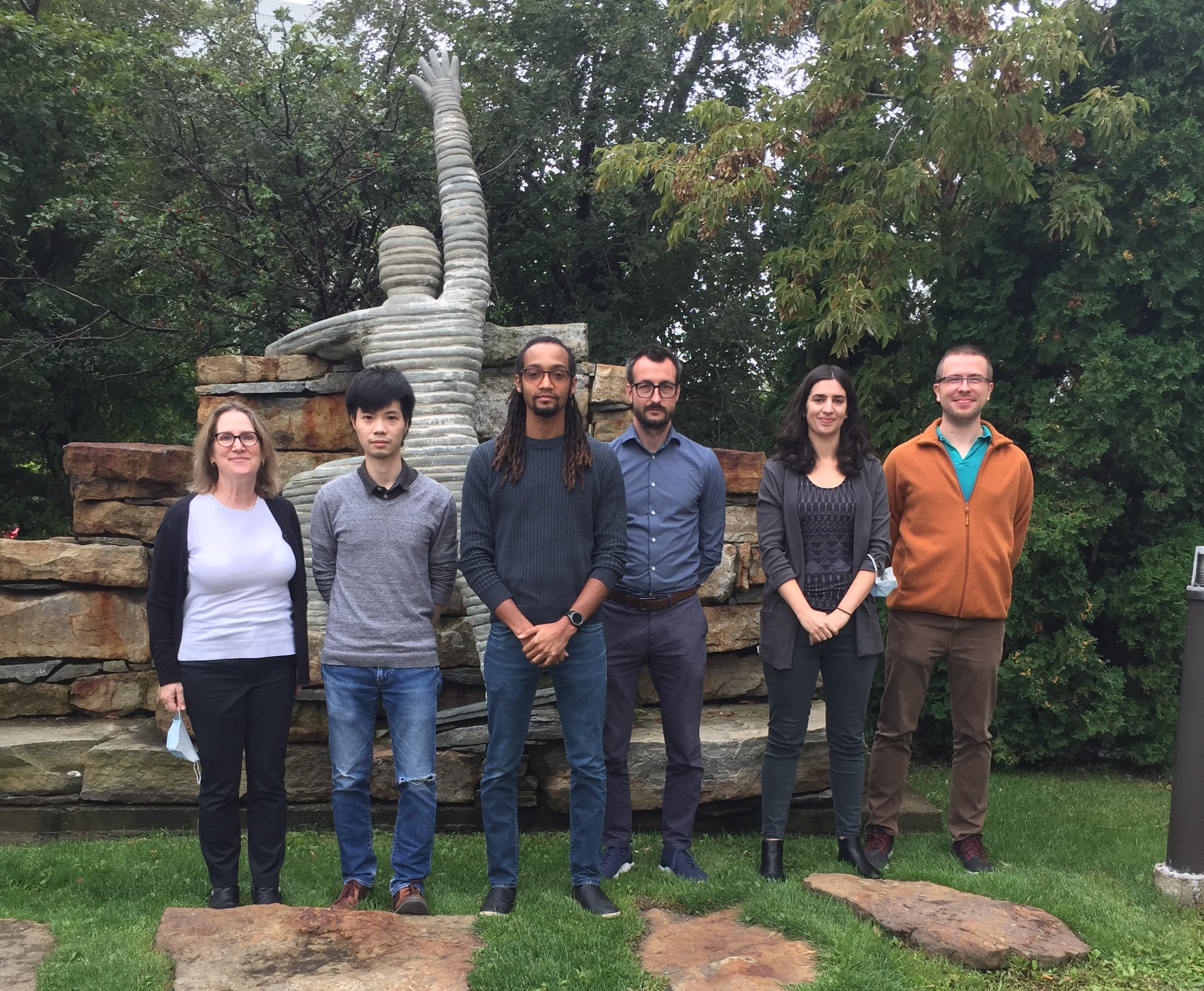
From left to right: Chantal Autexier, Jian Qin, Adrian Young, Patrick Lambert-Lanteigne, Linda Pallotto, Alexandre Garus.
My lab’s long-term research program focuses on understanding how telomere maintenance and genome stability is regulated, either by telomerase or the telomerase-independent homologous recombination-based Alternative Lengthening of Telomere (ALT) mechanism.
Functional chromosome ends, or telomeres, are essential for cell survival. Telomere function is maintained by (i) telomeric shelterin proteins that mediate a protective cap structure formation, and (ii) telomere lengthening, either by the enzyme telomerase, or a recombination-based mechanism (ALT). Non-functional telomeres arise due to telomere shortening or to cap alterations, and activate DNA damage checkpoints, and cell senescence or death. Non-functional telomeres may contribute to the development of aging phenotypes, such as vascular disease, poor wound healing, and immunosenescence. In the genetic syndrome dyskeratosis congenita, caused by defects in the telomerase or telomere complexes, telomere shortening is accelerated, and patients have premature onset of several age-related disorders and early death. Telomerase is active in ~85% of tumors, but weakly in primary cells, thus it is an attractive target for cancer cell-specific therapy.
My lab is pursuing projects to identify and characterize unique determinants of telomerase and telomere function, in recruitment and activation of telomerase to telomeres, critical steps that are impaired in premature aging telomere syndromes, and essential to the replicative immortality of cancer cells. We are also investigating the role of dyskerin, a telomerase holoenzyme component in the processing and biogenesis of a mature, functional telomerase complex, to learn more about the mechanisms that are altered in the premature aging syndrome, dyskeratosis congenita. Understanding the regulation of cell survival and immortalization by telomere maintenance and telomerase will lead to the identification of targets with potential therapeutic applications for cancer and age- or disease-related cell death.
Telomeres are prone to replication stress (slowing/stalling of the replication fork) in part due to the G-rich nature of telomeric sequences that can form secondary structures such as G-quadruplexes (G4s), the protective T- and D-loop cap structures, R-loops, and telomere compaction and attachment to the nuclear envelope. The mechanisms modulating the challenges of telomere replication are poorly understood. ALT+ cells are characterized by long telomeres and thus higher levels of telomere DNA damage and chronic replication stress compared to telomerase+ cells with shorter telomeres.
To gain a better understanding of the ALT pathway of telomere maintenance that is present in certain cancers with a high unmet medical need such as osteosarcomas, pediatric glioblastomas, other central nervous system tumors and pancreatic neuroendocrine cancers, we are interested in understanding the role of proliferating cell nuclear antigen (PCNA) and replication stress in regulating this pathway.
Contemporary research has uncovered a role for environmental copper in the development and progression of neurodegenerative diseases such as Alzheimer’s and Parkinson’s disease. Previous research implicated non-ceruloplasmin bound copper in the aggravation of neurodegenerative phenotypes. Our research explores the role of copper in ALS progression through monitoring of copper biomarkers and analyses of copper metabolism gene expression.
Lorem ipsum dolor sit amet consectetur adipisicing elit. Maxime mollitia, molestiae quas vel sint commodi repudiandae consequuntur voluptatum laborum numquam blanditiis harum quisquam eius sed odit fugiat iusto fuga praesentium optio, eaque rerum! Provident similique accusantium nemo autem. Veritatis obcaecati tenetur iure eius earum ut molestias architecto voluptate aliquam nihil, eveniet aliquid culpa officia aut! Impedit sit sunt quaerat, odit, tenetur error, harum nesciunt ipsum debitis quas aliquid. Reprehenderit, quia. Quo neque error repudiandae fuga? Ipsa laudantium molestias eos sapiente officiis modi at sunt excepturi expedita sint? Sed quibusdam recusandae alias error harum maxime adipisci amet laborum. Perspiciatis minima nesciunt dolorem! Officiis iure rerum voluptates a cumque velit quibusdam sed amet tempora. Sit laborum ab, eius fugit doloribus tenetur fugiat, temporibus enim commodi iusto libero magni deleniti quod quam consequuntur!
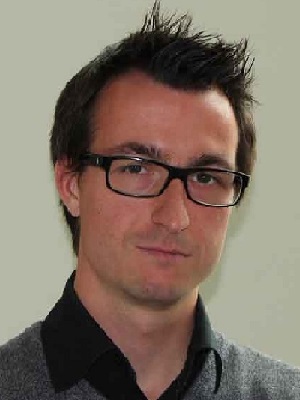
I obtained my BSc in pharmacology at University of Sherbrooke and graduated from University of Montreal with a MSc in pharmaceutical sciences in Prof. Huy Ong’s laboratory developing a ligand screening method for the CD36 receptor using SPR (surface plasmon resonance) biosensor. I then worked for Prof. Arnim Pause at McGill University trying to elucidate the interaction pattern between the folliculin protein with its binding partner AMPK. I then joined Prof. Chantal Autexier’s laboratory as a research assistant where I work in telomere biology, manage the lab and mentor undergraduate and graduate students. I helped characterize the binding pocket of two telomerase domain/motifs, IFD and TEN, with its binding partner TPP1, and I now focus on the telomerase-independent alternative lengthening of telomere mechanism.
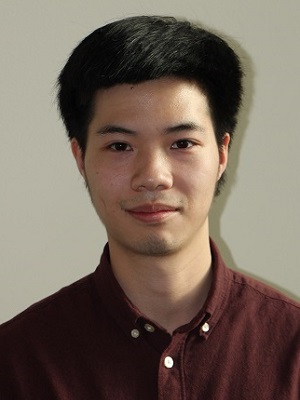
I received a BSc in Molecular Biology & Genetics from McMaster University in 2017. I am currently studying how mutations of dyskerin, a telomerase-associated protein, affect its interaction with other proteins, subcellular localization, and telomerase RNA abundance.

I am a Belizean pursuing a PhD in Anatomy and Cell biology at McGill University in Montreal. I completed my BSc in Biochemistry and Cellular and Molecular Biology and my MSc in Biochemistry at Memorial University in Newfoundland Canada. My research interest involves increased understanding stem and cancer cell dynamics and redox biology to be applied to therapeutics for health span extension.
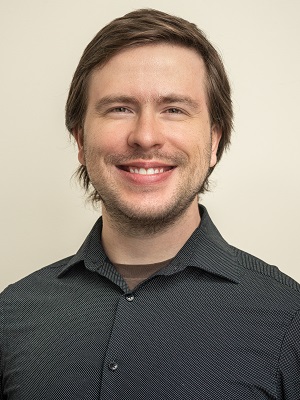
I come from Brazil, where I graduated in Biochemical Engineering at the Federal University of Paraná. I have more than four years of professional experience in manufacturing and quality assurance of reagents for molecular diagnostics. Now I’m interested in better understanding the role of the protein dyskerin and H/ACA ribonucleoprotein complexes in regulating telomere biology and cellular aging.
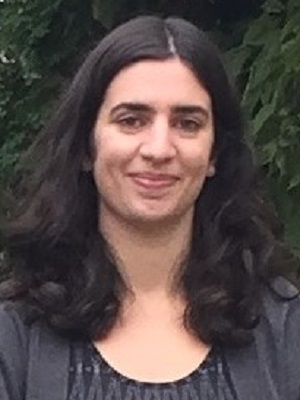
Linda completed her BSc in Biology at the University of Waterloo. During her undergraduate degree, she worked as a co-op student in the lab of Dr. Paul Mains where her project used C. elegans to describe gene variants that cause drug resistance in parasitic nematodes. After graduating, she worked for a year in the lab of Dr. Ryan Yuen at SickKids in Toronto investigating short tandem repeat expansions using Nanopore and Sanger sequencing. She is now pursuing her MSc in the Autexier lab and is interested in how a region of telomerase, known as the insertions in fingers domain (IFD), is involved in its localization and activity at the telomeres. When not in lab, Linda enjoys listening to music or watching movies while she knits.
Madelyn is a PhD student in the department of Experimental Medicine. She uses mouse modelling to study Diffuse Large B Cell Lymphoma. In particular, she has found that mutations in the transcription factor STAT6 are enriched at disease relapse, and I study how this contributes to remodeling of the tumour microenvironment.
Rowa is a PhD candidate in the department of Experimental Medicine. She completed her BSc in Microbiology and Immunology in Saudi Arabia, then completed two MScs in Genetics and Parasitology at McGill University. Her work investigates tungsten toxicity focusing on SLC2A2 as a transporter and the effects on mature B lymphocytes.
Vincenza is an MSc. Student in the Department of Pharmacology. She completed her BSc. in Pharmacology at McGill University. Her project aims to elucidate the role of e-cigarette use on the murine cardiopulmonary system. Specifically, she is focusing on metal deposition in the lungs, and the progression of atherosclerosis due to these exposures.
Nazli Zengin is an MSc. student in the Department of Pharmacology. She has a background in pharmacology and environment. Her work currently focuses on elucidating how sex and diet modulate arsenic toxicity and its immunological and cardiovascular consequences.
Andrew is an MSc. student in the Department of Pharmacology who graduated from the B.Sc. program in Biochemistry at McGill in 2021. He works on a proteomics project centred around Arsenic 3-Methyltransferase and the question about whether it serves an additional function.
Raymond is an MSc. Student in the Department of Pharmacology who completed his BSc. in Environmental Health Sciences from the UNC Chapel Hill as a as a Morehead-Cain Scholar. He received the McCall MacBain Scholarship in 2021. His project studies the mechanism of tungsten on mTORC1, a major regulator of cell growth and proliferation.
Nikola is an incoming MSc Student who completed his undergraduate degree in
Microbiology and Immunology at McGill University. He is currently working on an NSERC
summer project that assesses the functional characterization of macrophages exposed to arsenic using murine bone marrow-derived macrophages.
Roni is a second-year BSc student in Chemistry at McGill. As an undergraduate student, she works on various projects across the lab, but is currently focused elucidating the correlation between nonalcoholic fatty liver disease and vaping.
Graduation Year
Contemporary research has uncovered a role for environmental copper in the development and progression of neurodegenerative diseases such as Alzheimer’s and Parkinson’s disease. Previous research implicated non-ceruloplasmin bound copper in the aggravation of neurodegenerative phenotypes. Our research explores the role of copper in ALS progression through monitoring of copper biomarkers and analyses of copper metabolism gene expression.
Lorem ipsum dolor sit amet consectetur adipisicing elit. Maxime mollitia, molestiae quas vel sint commodi repudiandae consequuntur voluptatum laborum numquam blanditiis harum quisquam eius sed odit fugiat iusto fuga praesentium optio, eaque rerum! Provident similique accusantium nemo autem. Veritatis obcaecati tenetur iure eius earum ut molestias architecto voluptate aliquam nihil, eveniet aliquid culpa officia aut! Impedit sit sunt quaerat, odit, tenetur error, harum nesciunt ipsum debitis quas aliquid. Reprehenderit, quia. Quo neque error repudiandae fuga? Ipsa laudantium molestias eos sapiente officiis modi at sunt excepturi expedita sint? Sed quibusdam recusandae alias error harum maxime adipisci amet laborum. Perspiciatis minima nesciunt dolorem! Officiis iure rerum voluptates a cumque velit quibusdam sed amet tempora. Sit laborum ab, eius fugit doloribus tenetur fugiat, temporibus enim commodi iusto libero magni deleniti quod quam consequuntur!
Dr. Wilson Miller, Lady Davis Institute, Montreal
Dr. Sonia del Rincon, Lady Davis Institute, Montreal
Dr. Carolyn Baglole, RI-MUHC, McGill University, Montreal
Dr. Jun Ding, RI-MUHC, McGill University, Montreal
Dr. Susan Gaskin, Department of Chemical Engineering, McGill University, Montreal
Dr. Bernard Robaire, Department of Pharmacology McGill University, Montreal
Dr. Brandon Pearson, Columbia University, New York
Dr. John Wise, University of Louisville, Kentucky
Dr. Wilson Miller, Lady Davis Institute, Montreal
Dr. Sonia del Rincon, Lady Davis Institute, Montreal
Dr. Carolyn Baglole, RI-MUHC, McGill University, Montreal
Dr. Jun Ding, RI-MUHC, McGill University, Montreal
Dr. Susan Gaskin, Dep’t of Chemical Engineering, McGill University, Montreal
Dr. Bernard Robaire, Dep’t of Pharmacology McGill University, Montreal
Dr. Brandon Pearson, Columbia University, New York
Dr. John Wise, University of Louisville, Kentucky
Lorem ipsum dolor sit amet consectetur adipisicing elit. Maxime mollitia, molestiae quas vel sint commodi repudiandae consequuntur voluptatum laborum numquam blanditiis harum quisquam eius sed odit fugiat iusto fuga praesentium optio, eaque rerum! Provident similique accusantium nemo autem. Veritatis obcaecati tenetur iure eius earum ut molestias architecto voluptate aliquam nihil, eveniet aliquid culpa officia aut! Impedit sit sunt quaerat, odit, tenetur error, harum nesciunt ipsum debitis quas aliquid. Reprehenderit, quia. Quo neque error repudiandae fuga? Ipsa laudantium molestias eos sapiente officiis modi at sunt excepturi expedita sint? Sed quibusdam recusandae alias error harum maxime adipisci amet laborum. Perspiciatis minima nesciunt dolorem! Officiis iure rerum voluptates a cumque velit quibusdam sed amet tempora. Sit laborum ab, eius fugit doloribus tenetur fugiat, temporibus enim commodi iusto libero magni deleniti quod quam consequuntur!
Alexandre Garus
FRQS Doctoral Award, McGill University Faculty of Medicine Internal Studentship
Adrian Young
Jian Qin
Deanna MacNeil
CIHR CGS-M, CIHR Doctoral Award, Cole Foundation Studentship
Tsz Wai (Josephine) Chu
Johanna Mancini
FRQS doctoral award, Cole Foundation Studentship
Yasmin D’Souza
May Shawi
CIHR Doctoral Award, Cole Foundation Studentship
Marie Eve Brault
Johans Fakhoury
McGill University Faculty of Medicine Internal Studentship
Maria Antonietta Cerone
Tara Moriarty
CIHR Doctoral Award
Sylvain Huard
François Bachand
CIHR Doctoral Award
Linda Pallotto
CIHR CGS-M Award
Jeffrey Wang
Hélène Bensoussan
Lady Davis Institute for Medical Research/Toronto Dominion Bank Studentship
Ricky Kwan
McGill University Faculty of Medicine Internal Studentship
Graeme Nimmo
Ryan Ward
FRQS Award
Yasmin D’Souza
May Shawi
CIHR Doctoral Award, Cole Foundation Studentship
Marie Eve Brault
Johans Fakhoury
McGill University Faculty of Medicine Internal Studentship
Hannah Chui
NSERC USRA recipient
Dominique Rinfret
Michelle Shen
NSERC USRA recipient
Ricky Kwan
McGill University Faculty of Medicine Internal Studentship
Yasmin D’Souza
May Shawi
CIHR Doctoral Award, Cole Foundation Studentship
Marie Eve Brault
Johans Fakhoury
McGill University Faculty of Medicine Internal Studentship
A few interesting links related to Chantal Autexier, her laboratory and her research themes:
Dr. Wilson Miller, Lady Davis Institute, Montreal
Dr. Sonia del Rincon, Lady Davis Institute, Montreal
Dr. Carolyn Baglole, RI-MUHC, McGill University, Montreal
Dr. Jun Ding, RI-MUHC, McGill University, Montreal
Dr. Susan Gaskin, Dep’t of Chemical Engineering, McGill University, Montreal
Dr. Bernard Robaire, Dep’t of Pharmacology McGill University, Montreal
Dr. Brandon Pearson, Columbia University, New York
Dr. John Wise, University of Louisville, Kentucky
Lorem ipsum dolor sit amet consectetur adipisicing elit. Maxime mollitia, molestiae quas vel sint commodi repudiandae consequuntur voluptatum laborum numquam blanditiis harum quisquam eius sed odit fugiat iusto fuga praesentium optio, eaque rerum! Provident similique accusantium nemo autem. Veritatis obcaecati tenetur iure eius earum ut molestias architecto voluptate aliquam nihil, eveniet aliquid culpa officia aut! Impedit sit sunt quaerat, odit, tenetur error, harum nesciunt ipsum debitis quas aliquid. Reprehenderit, quia. Quo neque error repudiandae fuga? Ipsa laudantium molestias eos sapiente officiis modi at sunt excepturi expedita sint? Sed quibusdam recusandae alias error harum maxime adipisci amet laborum. Perspiciatis minima nesciunt dolorem! Officiis iure rerum voluptates a cumque velit quibusdam sed amet tempora. Sit laborum ab, eius fugit doloribus tenetur fugiat, temporibus enim commodi iusto libero magni deleniti quod quam consequuntur!
Dr. Wilson Miller, Lady Davis Institute, Montreal
Dr. Sonia del Rincon, Lady Davis Institute, Montreal
Dr. Carolyn Baglole, RI-MUHC, McGill University, Montreal
Dr. Jun Ding, RI-MUHC, McGill University, Montreal
Dr. Susan Gaskin, Dep’t of Chemical Engineering, McGill University, Montreal
Dr. Bernard Robaire, Dep’t of Pharmacology McGill University, Montreal
Dr. Brandon Pearson, Columbia University, New York
Dr. John Wise, University of Louisville, Kentucky
3755, Côte Ste-Catherine Road
Montreal, Quebec H3T 1E2
Email: